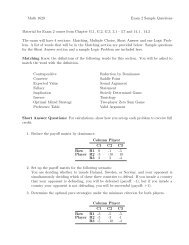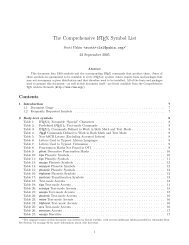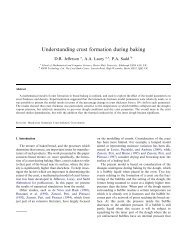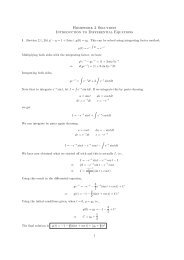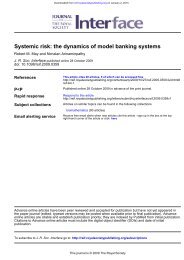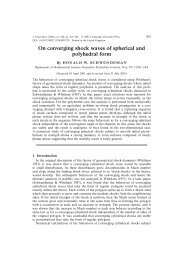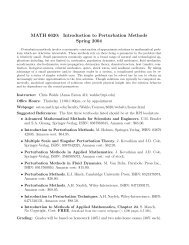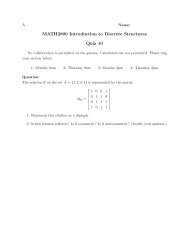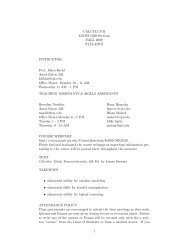ILOG CPLEX C++ API 9.0 Reference Manual
ILOG CPLEX C++ API 9.0 Reference Manual
ILOG CPLEX C++ API 9.0 Reference Manual
Create successful ePaper yourself
Turn your PDF publications into a flip-book with our unique Google optimized e-Paper software.
IloCplex::ControlCallbackI<br />
For each element of the array vars, this method puts the lower bound at the current<br />
node into the corresponding element of the array vals. These bounds are likely to be<br />
different from the bounds in the original model because an instance of IloCplex<br />
tightens bounds when it branches from a node to its subnodes.<br />
protected void getLBs(IloNumArray val,<br />
const IloNumVarArray vars)<br />
This method puts the lower bound at the current node of each element of the array vars<br />
into the corresponding element of the array vals. These bounds are likely to be<br />
different from the bounds in the original model because an instance of IloCplex<br />
tightens bounds when it branches from a node to its subnodes.<br />
protected NodeData * getNodeData()<br />
This method retrieves the NodeData object that may have previously been assigned to<br />
the current node by the user with the method<br />
IloCplex::BranchCallbackI::makeBranch. If no data object has been<br />
assigned to the current node, 0 (zero) will be returned.<br />
protected IloNum getObjValue()<br />
This method returns the objective value of the solution of the relaxation at the current<br />
node.<br />
protected IloNum getSlack(const IloRange rng)<br />
This method returns the slack value for the constraint indicated by rng in the solution<br />
of the relaxation at the current node.<br />
protected void getSlacks(IloNumArray val,<br />
const IloRangeArray con)<br />
For each of the constraints in the array of ranges rngs, this method puts the slack value<br />
in the solution of the relaxation at the current node into the corresponding element of<br />
the array vals.<br />
protected IloNum getUB(const IloIntVar var)<br />
This method returns the upper bound of the variable var at the current node. This<br />
bound is likely to be different from the bound in the original model because an instance<br />
of IloCplex tightens bounds when it branches from a node to its subnodes.<br />
protected IloNum getUB(const IloNumVar var)<br />
This method returns the upper bound of the variable var at the current node. This<br />
bound is likely to be different from the bound in the original model because an instance<br />
of IloCplex tightens bounds when it branches from a node to its subnodes.<br />
protected void getUBs(IloNumArray val,<br />
const IloIntVarArray vars)<br />
<strong>ILOG</strong> <strong>CPLEX</strong> <strong>C++</strong> <strong>API</strong> <strong>9.0</strong> REFERENCE M ANUAL 111



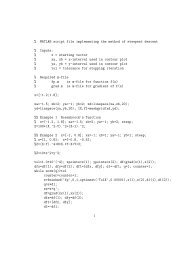

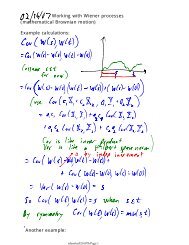

![MATH 1500 Sample Questions Exam 2 1. [3.7] A 10-ft plank is ...](https://img.yumpu.com/43861920/1/190x245/math-1500-sample-questions-exam-2-1-37-a-10-ft-plank-is-.jpg?quality=85)
